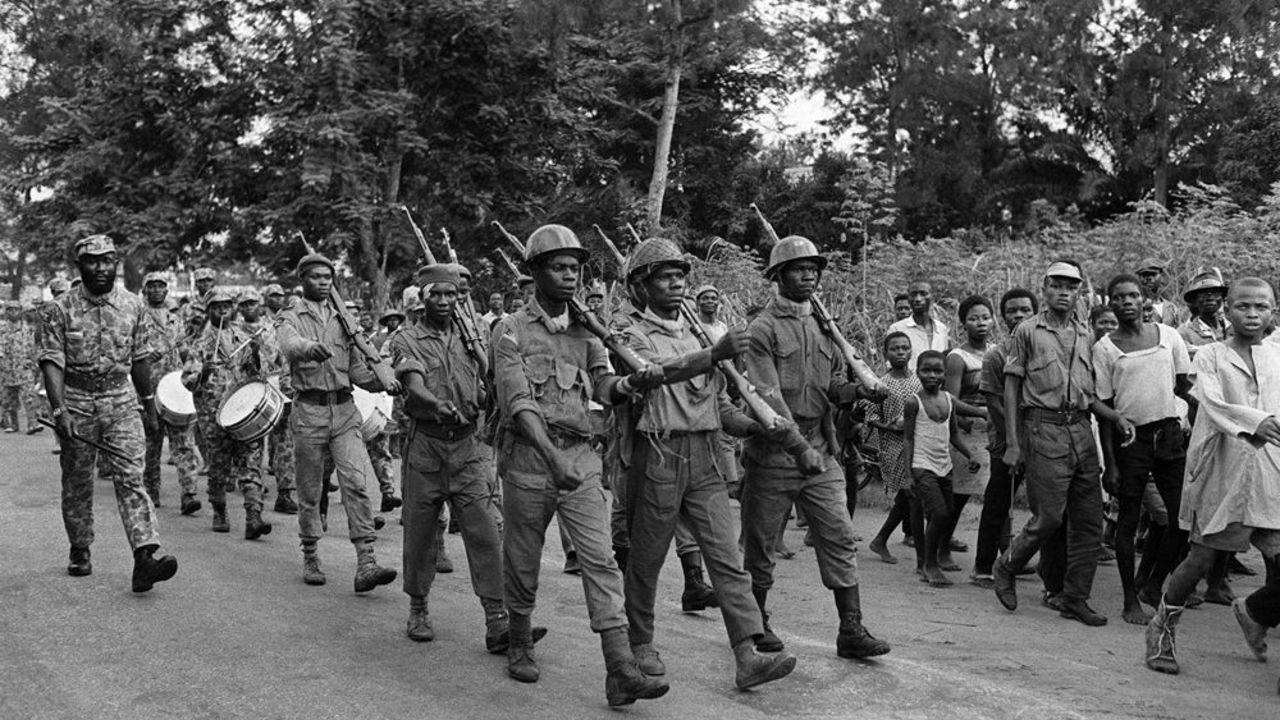
I was privileged to chat privately with Nobuo Hayashi at the Cafeteria of the UN Campus in Turin. Nobuo is a Senior Research Fellow at the Oslo Peace Institute. This Japanese professor is a major name in International Humanitarian Law and of course my best lecturer at the University of Turin. I was not able to meet Antonio Cassesse regarded as the Grotius of his time; he passed away shortly before I arrived Europe for my postgraduate studies (bless his brilliant soul). But, I had William Schabas another doyen of International Law, Judges Wolfagng Schomburg and Fausto Pocar all of ICTY.
One significant thing about Nobuo is his analytical prowess. His lecture on Conduct of Hostilities remained my best module at the LL.M. Nobuo gave a vivid account of the Nigerian Civil war more than I ever read in any book or heard from any war historian. This propelled my further research, which showed that the war was one of the most remarkable armed conflicts in the world in terms of unrecorded death toll and magnitude of suffering due to starvation that mainly affected children. ‘Unrecorded’ because of the western propaganda against the poor secessionist Biafrans, a propaganda that was borne out of some sullen motives. Though the state of Israel recognised ‘their people’ and also, few other African countries like Tanzania. Nyerere paid greatly for this! He was treated like Mugabe after his (Mugabe’s) white farmers debacle by some of the Western countries that contributed to the Biafra’s piteous fate.
While the early rules of war like the Lieber Code of 1863 okayed starvation as a war strategy in international armed conflicts, the Report of the post World War 1 Commission on Responsibility declared deliberate starvation of civilians as a war crime. This report was codified in the First Additional Protocol to the Geneva Convention (AP1) passed in 1979, nine years after the Nigerian Civil War. Though the Additional Protocol is mainly applicable to international armed conflicts, the jurisprudence of international criminal tribunals and wide practices amongst countries made the provisions part of international customs that also govern non-international armed conflicts like the Nigeria Civil War. If AP 1 came into being any time before 1967 when the Nigerian Civil War broke out, war criminals would have been among the recent Nigeria’s helmsman.
Why I’m I going this route? I recall asking some Nigerian history professors questions about the Biafran War or the Nigerian Civil War, properly so called, and always getting faces that seemed to say ‘ask for something else and don’t bother me’. I wanted to read about this war from a pure academic perspective, but the local authors were mainly those that merely gave accounts of their experience in the war. Majority of the ‘academic’ war historians that had in dept purview of the war were from Europe and North America. I did not hear anything about the war as a history student in Secondary school, and same gap existed in history curriculum of all the primary and post primary schools of the time. A sham reason was that national integration would be short-circuited by a living memory of the brutal war if the gory accounts were retained in Nigerian history textbooks.
Major armed conflicts that marked sacrifices that strengthened the existence of a country are widely celebrated around the world. Russia celebrates the surrender of the Nazi Germany to the Soviet Union and her allies during the Second World War on May 9. Germany remembers various victims of war in a National Day of Mourning (Volkstrauertag), while Israel celebrates soldiers and others that laid down their lives in various armed conflicts on the 4th of the Hebrew month of Iyar. If the reason for not following this trajectory in commemoration of the Nigerian Civil War is to avoid celebrating those that fought on the Biafran side, then the declaration of ‘no victor, no vanquished’ after the war by General Gowon has got a big question marks.
The ease with which June 12 was made a Democracy Day and national public holiday in Nigeria deepened this question mark around the Nigerian Civil War. These two events have remarkable distinctions, but similarities also exist- the future and collective destiny of Nigerians were shaped by the events. I do not want to go into these nuances, but it is critically germane that while the civil war was characterized by an unimaginable carnage against a part of the country, such may not be said about the June 12. The point is not to celebrate the Biafran loss, but to pay credence to the scale of sacrifices that were made by men and women on both sides. Sacrifices that were supposed to strengthen our coexistence in this union, shape our collective destiny and chart a new course for a prosperous future.
That day could be named Unity Day!
Offor wrote from Cape Town, South Africa.






